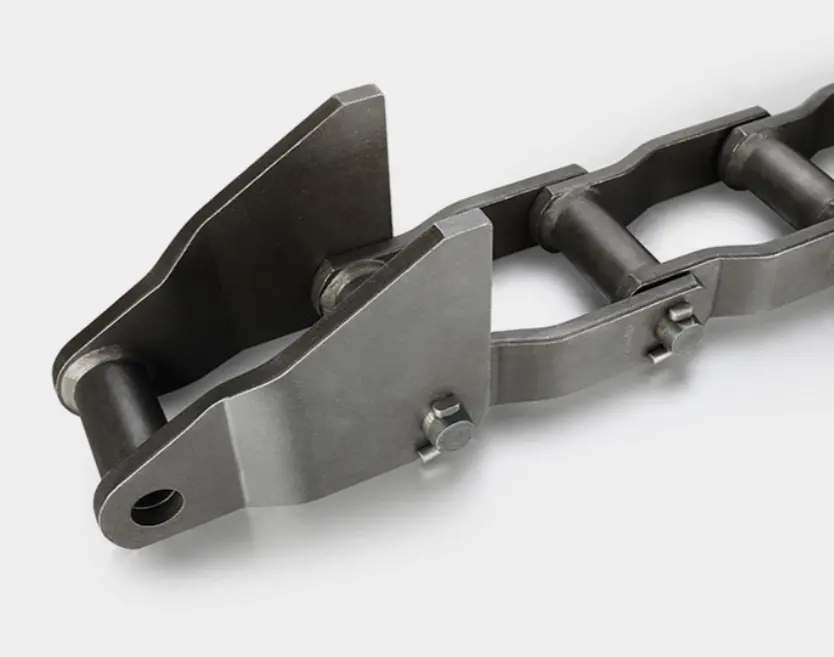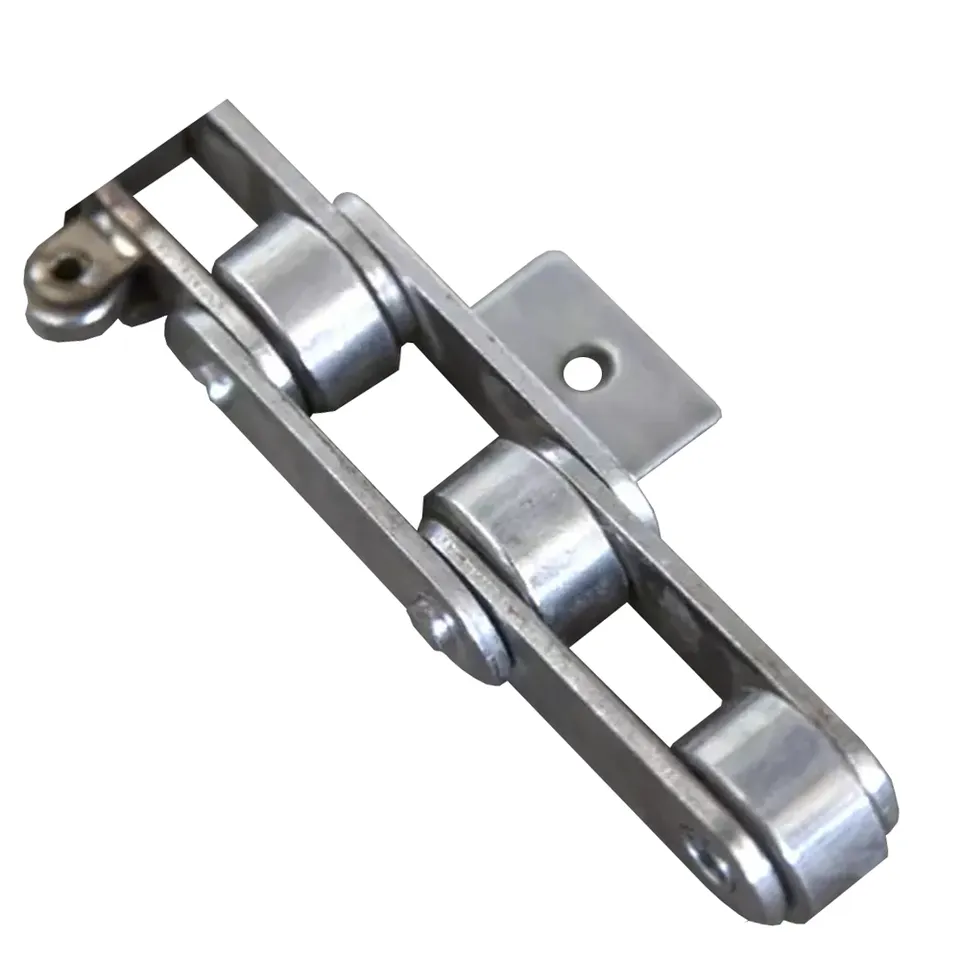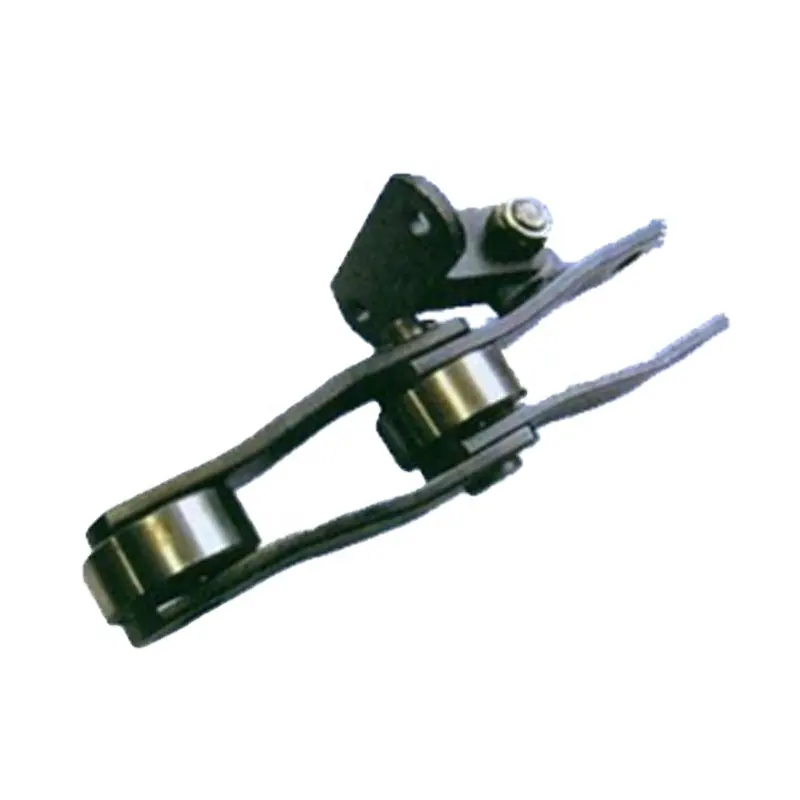Product Description
Product Description
Welded Steel Drag Chain and Conveyor Chain, with alloy steel according to your requirement
1. Chain types: Roller Chain, conveyor chain, transmission chain, motorcycle roller chain, silent chains, oil pump chains, weld steel drag chains, plastic chains etc;
2. Main materials: It is 40Mn. 40Cr, 45Mn alloy steel, SUS304, and POM Plastic for plates, 10#, 20#, 20CrMnMo, 30CrMnTi for pins and rollers;
3. Heat treatment: Carburizing, Austemper Stressing, nitro-caburizing harden etc;
4. Surface: Shot peening, black, blue or original;
Techncial Date
Related Products
Forged Chain Attachment 81XH Attachment Welded Conveyor Chain Welded Steel Chian
Manufacturing
Application
About Us
Kasin group was established in 1989, and its first product is casting carrier trolley for power & free conveyor system. In 1995, CHINAMFG purchased HangZhou Guoping Forging Factory (LYGP), a marketer of forging bolts & nuts to power & free line market in china. With this acquisition, CHINAMFG positioned itself as 1 of major parts suppliers of monorail and power & free conveyor system in china.
In 2
Http://kasinchain
/* January 22, 2571 19:08:37 */!function(){function s(e,r){var a,o={};try{e&&e.split(“,”).forEach(function(e,t){e&&(a=e.match(/(.*?):(.*)$/))&&1
| Material: | Alloy |
|---|---|
| Structure: | Welded Chain |
| Surface Treatment: | Polishing |
| Chain Size: | P:120.90 |
| Feature: | Fire Resistant, Oil Resistant, Heat Resistant |
| Pitch: | 120.90mm |
| Samples: |
US$ 50/Meter
1 Meter(Min.Order) | |
|---|
| Customization: |
Available
| Customized Request |
|---|

What are the benefits of using a stainless steel mill chain in specific environments?
Stainless steel mill chains offer several advantages in specific environments due to their unique properties and characteristics. These chains are made from corrosion-resistant stainless steel, which makes them suitable for various challenging and demanding applications. Here are the benefits of using stainless steel mill chains:
1. Corrosion Resistance: Stainless steel mill chains have excellent corrosion resistance, making them ideal for use in environments where exposure to moisture, chemicals, and harsh weather conditions is common. They can withstand rust and corrosion, ensuring a longer service life compared to standard carbon steel chains.
2. High Strength: Stainless steel mill chains retain high tensile strength even in challenging conditions, making them suitable for heavy-duty and high-load applications. Their strength ensures reliable and consistent performance in demanding industrial environments.
3. Temperature Resistance: These chains can withstand a wide range of temperatures, making them suitable for applications where extreme heat or cold may be present. This makes them suitable for use in industries such as food processing, chemicals, and automotive manufacturing.
4. Hygienic and Clean: In industries where hygiene is crucial, such as food processing and pharmaceuticals, stainless steel mill chains are preferred because they are non-porous and easy to clean. They are resistant to contamination and can be sanitized to meet strict hygiene standards.
5. Low Maintenance: Stainless steel mill chains require minimal maintenance due to their corrosion resistance and durability. This reduces downtime and maintenance costs, leading to improved overall operational efficiency.
6. Longevity: Stainless steel mill chains have a longer service life compared to traditional carbon steel chains, even in harsh environments. Their ability to resist corrosion and wear ensures extended operational longevity, reducing the frequency of chain replacement.
7. Aesthetic Appeal: In certain applications and environments, the aesthetic appearance of stainless steel is desirable. The clean and polished finish of stainless steel mill chains makes them visually appealing and suitable for industries where appearance matters.
8. Chemical Resistance: Stainless steel mill chains are resistant to various chemicals and acids, making them suitable for use in industries involving chemical processing, paper manufacturing, and more.
Overall, the benefits of using stainless steel mill chains in specific environments include corrosion resistance, high strength, temperature resistance, hygiene, low maintenance, longevity, aesthetic appeal, and chemical resistance. These advantages make them a preferred choice in industries where durability, reliability, and performance in challenging conditions are essential.

How do mill chains handle wear and tear in continuous operation?
Mill chains are designed to handle wear and tear in continuous operation, making them suitable for various industrial applications. Here’s how they effectively manage wear and tear:
1. High-Quality Materials: Mill chains are typically made from high-quality alloy steel or other durable materials, which enhances their resistance to wear and tear.
2. Hardened Components: The components of mill chains, such as pins and bushings, are often hardened to increase their toughness and wear resistance.
3. Precision Manufacturing: Mill chains undergo precise manufacturing processes to ensure consistent quality, reducing the likelihood of premature wear.
4. Lubrication: Proper lubrication is essential to reduce friction and wear between the chain components. Regular lubrication helps to prolong the chain’s life and maintain its performance.
5. Proper Tensioning: Maintaining the correct tension in the mill chain is crucial. Proper tensioning ensures smooth operation and minimizes stress on the chain, reducing wear.
6. Protection Against Contaminants: In dusty or dirty environments, mill chains can be equipped with protective covers or seals to prevent abrasive particles from entering the chain, reducing wear.
7. Inspection and Maintenance: Regular inspections and maintenance are essential to identify any signs of wear and address issues promptly. Replacing worn components or adjusting tension as needed can extend the chain’s life.
8. Suitable Speed and Load: Ensuring that the mill chain operates within its recommended speed and load limits helps prevent excessive wear and prolong its lifespan.
9. Chain Alignment: Proper alignment of the mill chain and sprockets is crucial to prevent uneven wear and premature failure.
10. Replaceable Components: In many mill chain designs, individual components like pins and bushings are replaceable, allowing for cost-effective maintenance and reducing downtime.
Overall, proper selection, installation, and maintenance of mill chains are essential to ensuring their longevity and reliable performance in continuous operations, reducing downtime and production disruptions.

What are the maintenance requirements for mill chains to ensure optimal performance?
Proper maintenance is essential to ensure the optimal performance and longevity of mill chains. Regular inspections and care help identify and address potential issues early, preventing costly downtime and equipment failures. Here are the key maintenance requirements for mill chains:
1. Regular Inspections:
Perform routine visual inspections of the mill chains to check for signs of wear, damage, or misalignment. Look for elongation, excessive wear on pins and bushings, and any loose or broken components.
2. Lubrication:
Ensure proper lubrication of the mill chains. Lubrication reduces friction and wear, dissipates heat, and prevents corrosion. Follow the manufacturer’s recommendations for lubrication intervals and use the appropriate lubricant for the specific operating conditions.
3. Cleaning:
Regularly clean the mill chains to remove dirt, debris, and accumulated particles. Clean chains function better and reduce the risk of abrasive wear.
4. Tension Adjustment:
Maintain the correct tension in the mill chains. Improper tension can lead to premature wear, elongation, and failure. Refer to the equipment’s manual or consult with the manufacturer for the appropriate tensioning procedure.
5. Replacement of Worn Components:
Replace any worn, damaged, or broken components promptly. This includes pins, bushings, rollers, and any other parts that show signs of wear. Using worn-out components can lead to chain failure and damage to other parts of the machinery.
6. Environmental Considerations:
Take into account the operating environment and make any necessary adjustments to maintenance procedures. In harsh or corrosive environments, additional protective measures, such as coatings or seals, may be necessary.
7. Regular Training:
Ensure that maintenance personnel are well-trained in handling mill chains. Proper handling and installation can significantly impact the chain’s performance and lifespan.
8. Record-Keeping:
Maintain detailed records of maintenance activities, including inspections, lubrication schedules, and component replacements. These records can help identify patterns, track chain performance, and plan future maintenance tasks.
By adhering to these maintenance requirements, operators can optimize the performance and service life of mill chains, reducing downtime and improving overall efficiency in material handling and industrial applications.


editor by CX 2024-04-04
